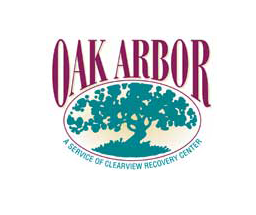3 Benefits of Exercise for Individuals in Recovery
- By Admin
- •
- 04 Aug, 2020
- •

Individuals who suffer from drug or alcohol addiction may have to leap over a number of hurdles in their efforts to get well and stay well. Years of substance abuse can leave lasting physical damage and weaknesses. It also alters brain chemistry so that the substance in question becomes essential for experiencing pleasure.
Fortunately, a new emphasis on physical fitness can help you counteract the poisonous legacy of drugs and alcohol on your body and mind. Here are three life-changing benefits you can enjoy by allowing regular exercise to take a central role in your quest for a more secure and healthy recovery.
1. Exercise Can Address Drug-Induced Damage
Many addictive substances can cause or worsen health problems. For example, excess alcohol consumption can lead to hypertension, hyperglycemia, heart problems, stroke, and pancreatitis. It can also cause progressive liver disease, which may eventually develop into permanent scarring of the organ.
Inhalants and other drugs can impair neurological or musculoskeletal health. Even anabolic steroids, which can help boost muscle mass in individuals who need such assistance, can ultimately increase an abuser's risks for heart disease, muscle tears, and muscle or bone infections.
Exercise can help you turn much of this damage around. In the case of alcohol-induced liver disease, simple exercises such as walking can help the body burn triglycerides, sugars, and excess fat in the liver. Experiments with animals indicate that exercise may also reverse superficial liver damage or slow disease progression.
If you have developed heart issues, muscle spasms, or blood pressure abnormalities related to the abuse of stimulants, alcohol, or other drugs, exercise can help you improve your cardiovascular and musculoskeletal health. Weight-bearing exercises can also improve bone density lost to drugs such as steroids.
2. Exercise Can Normalize Endorphin Levels
Much of your sense of well-being comes from the production of neurotransmitters known as endorphins. When endorphins attach to certain receptors in the brain, they trigger feelings of pleasure, reward, and contentment. Addictive drugs act as synthetic endorphins, hijacking these receptors and producing strong responses.
Unfortunately, as the brain grows accustomed to the presence of these endorphin substitutes, it produces fewer and fewer endorphins of its own. As a result, you feel distinctly sick, anxious, or depressed in the absence of the addictive drug, compelling you to keep taking the substance until you finally break the addiction cycle.
Exercise can come to your rescue as you work to free yourself from the grip of addictive drugs. Intense physical activity jump-starts the production of natural endorphins as the body's way of counteracting exercise-related aches and pains. You can get this natural high from walking, running, jogging, swimming, and other exercises.
3. Exercise Can Serve as a Healthy New Habit
Substance abuse involves a number of mechanisms, from genetics to social pressures. Abusing drugs or alcohol can become a habit or ritual that fills your time and provides relief in its own way. When addicts first break away from their drug of choice, they often feel uneasy without this comforting ritual.
Exercise can provide you with a new, healthy habit to replace your previous, unhealthy one. The process includes consciously giving up one habit, choosing another habit to take its place, and then repeating the behavior until it becomes ingrained. Psychologists refer to this cycle as a habit replacement loop.
As your exercise regimen takes up much of the time and attention formerly occupied by substance abuse, you should find it easier to focus on good health and work on your recovery. At the same time, your new habit will continue to rehabilitate your body and rebalance your mental chemistry.
A new fitness regimen can help you complete a successful journey back to a productive, happy life - and so can Oak Arbor's transitional treatment services. Contact us today to learn more.





